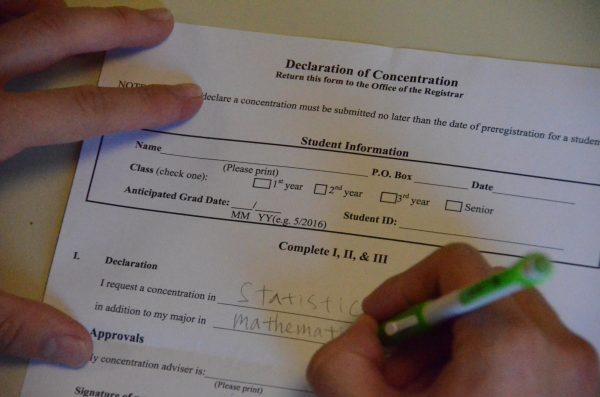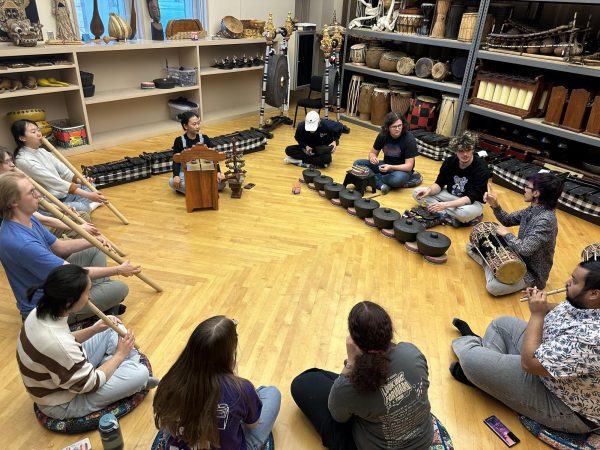On the same Paige: sexplanations and other equity tips
Paige Olowu `22 is offering advice about well-being on-and off-campus.
December 5, 2022
Sexplanations and Other Equity Tips is an anonymous Q&A column centering on all things related to sex, gender and healthy relationships. It serves as an educational resource aimed at increasing access to information, normalizing healthy behaviors and promoting a culture of sexual respect on campus. Questions will be answered by Post Baccalaureate Prevention and Outreach Coordinator, Paige Olowu `22, in collaboration with the Title IX office.
When does a drunken hook-up become nonconsensual?
Before I answer this question, I want to share a definition of consent: consent consists of an affirmative, conscious decision by each participant to engage in mutually agreed upon sexual activity. When thinking about consent, I often refer to the Planned Parenthood acronym F.R.I.E.S. which states that consent must be freely given, reversible, informed, enthusiastic and specific. Obtaining consent isn’t the absence of a “no” but rather the presence of an avid yes. Consent consists of an outward demonstration indicating that an individual has freely chosen to engage in sexual activity.
In places like college campuses where the perception is that drinking and sexual experimentation are common or expected (but do not have to be!), the relationship between sex and alcohol or other drugs (including prescriptions) is quite nuanced. While consensual sex can occur when alcohol has been consumed, we must also recognize the impact alcohol use can have on clear, informed decision making. Alcohol and other drugs can complicate one’s ability to give and recieve consent. Alcohol and other drugs impair judgment, affect one’s capacity to communicate and impact the ability to read and interpret communication from others. To be clear, it is never the victim’s fault when they experience sexual violence, even when they have consumed alcohol or other drugs.
The point at which a drunken hookup turns nonconsensual rests in our understanding of the difference between influenced and incapacitated. A person influenced by alcohol and other drugs may display signs of euphoria, exaggerated emotions or lowered inhibitions, whereas an incapacitated person may have difficulty speaking coherently, show signs of confusion, weave and stumble and even pass out. Questions you can ask yourself to help tell the difference are: Is my partner coherent? Can my partner communicate their thoughts clearly? Does this person understand what is going on around them?
An incapacitated person cannot give consent. If you are unsure whether a person is sober enough to consent, it is best to not engage in any sexual activity. Relying on non-verbal communication, inferences or passivity can lead to dangerous misunderstandings or assault. If at any time it is reasonably apparent that either party is hesitant, confused, unsure or unable to fully communicate, both parties should stop and hold off on sexual activity until sober.
It’s important to note that giving and obtaining consent through active communication is a crucial aspect of sexual activity for established partners. Whether it is only your second time hooking up or if you’ve been dating for the past 3 years, if a partner has given consent to sexual activity in the past, it does not automatically apply to current or future interactions. Everyone has the right to change their mind at any point, even if it is something they have previously said yes to. Questions you can ask to check in sound like: Do you like this? Do you need a break? Are you having fun? What do you want to do next?
Consensual responses to these questions look and sound like conti-uous communication at every step — responses like, “this feels good” or “I want to do this now” should indicate that the needs of everyone involved are being met. If anyone is ever worried that asking for consent may ruin the moment or prevent their hookup from happening, I’d advise them to look inward and examine why their hookup has to happen at that time. If the reason for not asking is because allowing their partner to opt out will mean that the hookup won’t happen, then it probably shouldn’t happen in the first place. I’m not going to spout that “asking for consent is sexy.” Rather, asking for consent is mandatory. Asking for and obtaining consent and engaging in clear and continuous communication allows all partners to effectively express their boundaries, wants and desires.
I hope that helped answer your question. Consent is only truly meaningful when someone can give it knowingly, voluntarily and affirmatively. If these conditions do not exist from the beginning to the end of each instance of sexual activity, it is non-consensual.






































































